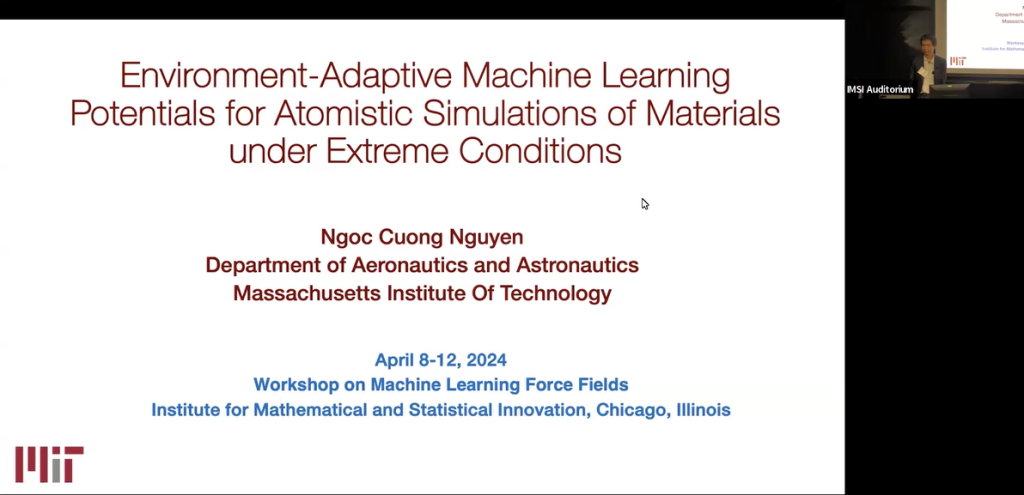Environment-adaptive machine learning potentials for atomistic simulations of materials under extreme conditions
Presenter
April 9, 2024
Event: 41742
Abstract
This talk focuses on the development of machine learning potentials for atomistic simulation of materials under extreme conditions. In the first part of the talk, we present a unified framework for constructing internal coordinate descriptors and atom density descriptors. We show the equivalence between for the internal coordinate formulation and the atom density formulation for many cases. Based on this equivalence principle, we reformulate internal coordinate potentials/descriptors using the atom density formulation. We develop an efficient algorithm to compute the atom density descriptors. In the second part of the talk, we develop a novel methodology for creating descriptors that dynamically adjust to the unique local environments surrounding each central atom. This involves conceptualizing the atomic energy at every central atom as a probabilistic distribution across various clusters within the reduced-dimensional descriptor space. This process is facilitated by employing techniques such as Principal Component Analysis (PCA) and K-means clustering, thereby enabling a more nuanced and environment-specific representation of atomic interactions. We employ these newly developed machine learning potentials to perform property calculations and atomistic simulations of several elements and compounds. We compare them with density-functional-theory and experiments for a wide range of observable properties, including crystal, liquid, and amorphous bulk phases, as well as defects and phonon dispersion. We demonstrate that these new potentials enable accurate atomistic simulations of Aluminium, Hafnium, and Hafnia under extreme temperature conditions.
